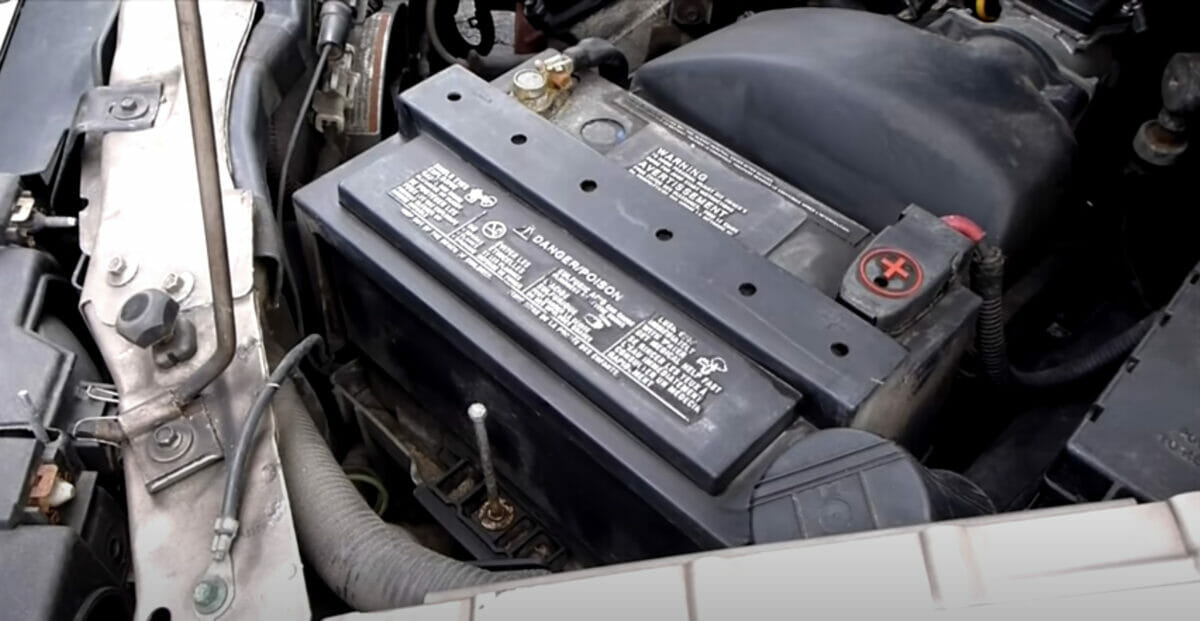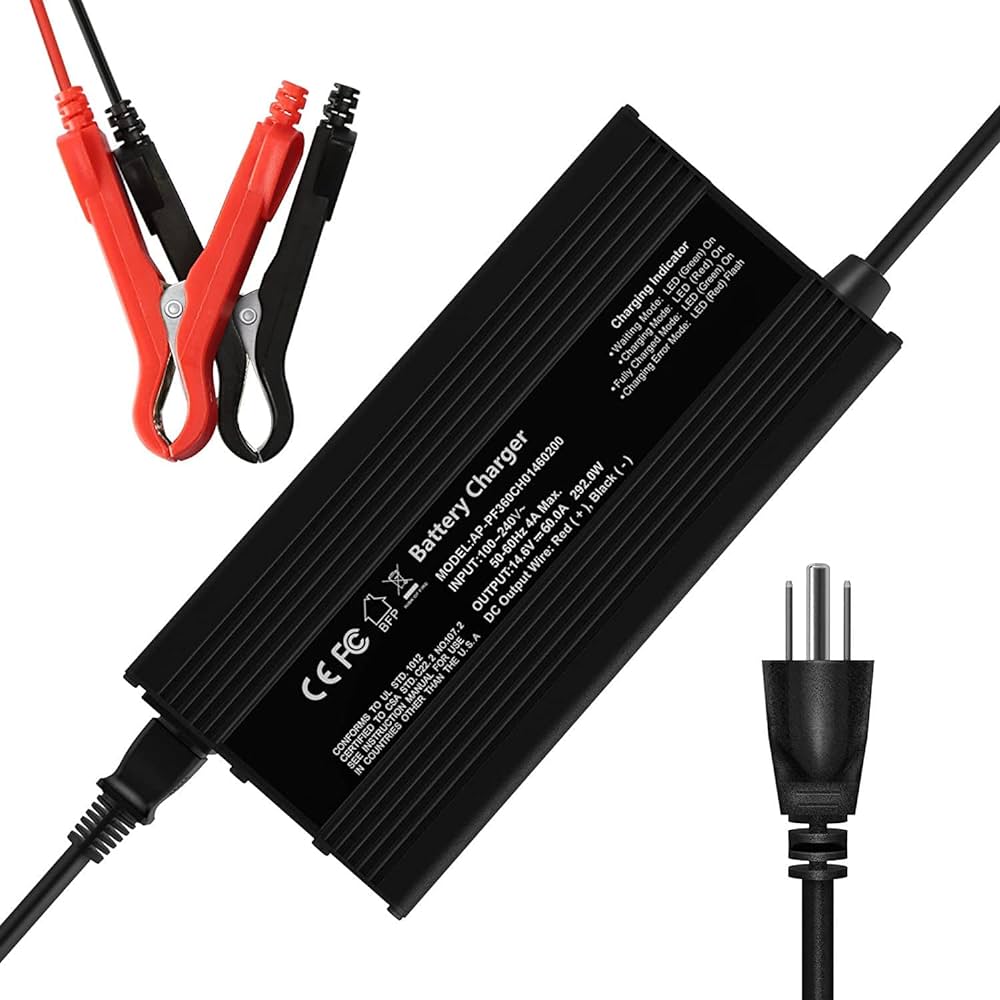Marvelous Info About How To Fix An Overcharged Battery

Uh Oh! Your Battery's Had Too Much to Drink — Now What?
1. Is Your Battery Feeling a Little Too Full?
So, you've accidentally left your battery charger on a bit too long, and now you're staring at a potentially overcharged battery. Don't panic! We've all been there. It's like leaving a pizza in the oven for an extra 30 minutes — not ideal, but hopefully salvageable. An overcharged battery isn't just a slight inconvenience; it can lead to diminished battery life, damage to your device, or, in extreme cases, even pose a safety hazard. Think of it as your battery having a little too much sugar; it gets hyper and then crashes hard.
But before we dive into fixing the problem, let's understand why overcharging happens in the first place. Modern devices often have built-in charging circuits that are supposed to prevent overcharging, but these aren't foolproof. Factors like a faulty charger, a malfunctioning battery management system, or even just plain user error (forgetting to unplug it!) can contribute to an overcharging situation. And sometimes, lets be honest, were just a little too trusting of that "smart" technology.
The good news is that in many cases, an overcharged battery can be recovered, or at least the damage can be minimized. Were going to walk you through some simple steps you can take to address the issue and hopefully bring your battery back to its senses. Consider this your batterys intervention — we're here to help it get back on the right track.
Think of your battery as a houseplant. You need to give it just the right amount of water (charge). Too little, and it wilts (dies). Too much, and the roots rot (battery degrades). The key is finding that sweet spot, that perfect balance that keeps everything humming along nicely. Let's get started!

Identifying the Problem
2. Recognizing the Red Flags
How do you know if your battery has been enjoying the charging station a little too much? Keep an eye out for these telltale signs. First, check the temperature. If your battery is noticeably hot to the touch, that's a major red flag. It should feel warm during charging, but never scorching. It's like a fever for your battery! You definitely don't want to ignore that.
Another sign is a bulging or deformed battery casing. If your battery looks like it's been hitting the gym a little too hard and swelling up, that's a sign of internal pressure buildup due to overcharging. This is especially important for lithium-ion batteries, which can become unstable when overcharged. Immediately disconnect the battery and handle it with extreme caution.
Also, pay attention to how quickly your battery drains after being fully charged. If you notice a significant drop in battery life compared to its usual performance, overcharging could be the culprit. This is because overcharging can damage the battery's internal components, reducing its capacity to hold a charge. It's like your battery is getting forgetful and can't remember to hold onto the power.
Finally, trust your senses! A strange smell emanating from the battery or device could indicate chemical leakage or damage. Disconnect the power source immediately and ventilate the area. Safety first, always! These symptoms, while not all present at the same time, are important to note to know how to fix an overcharged battery.

How To Fix Overcharged Battery Expert Guide For Quick Solutions
Immediate Actions
3. The First Responders Guide to Overcharged Batteries
Okay, so you suspect your battery is overcharged. What's the first thing to do? Simple: Unplug it! Disconnect the charger immediately to prevent further damage. Think of it like stopping the flow of water before the dam breaks. Time is of the essence.
Next, let the battery cool down. Place it on a non-flammable surface away from anything that could catch fire. Do not put it in the refrigerator or freezer — rapid temperature changes can cause more harm than good. Just let it sit and gradually return to room temperature. Imagine giving your battery a soothing spa treatment, letting it relax and de-stress.
Once the battery has cooled down, carefully inspect it for any signs of damage, such as swelling, leakage, or discoloration. If you notice any of these, do not attempt to use the battery. It's better to be safe than sorry. Contact a qualified technician or dispose of the battery properly according to local regulations. This is like calling in the experts to assess the damage after a storm.
If the battery appears to be in good condition, you can try to gently clean the terminals with a dry cloth to remove any corrosion or residue. This can improve the connection and ensure proper charging in the future. It's like giving your battery a little polish to help it shine.

Tried-and-True Techniques to Revive an Overcharged Battery
4. Giving Your Battery a Second Chance
If your battery appears to be in reasonably good shape after that initial assessment, there are a few tricks you can try to coax it back to life. Note that these steps are mainly for lead-acid batteries commonly found in cars, motorcycles, or backup power systems. For lithium-ion batteries in your phone or laptop, you're often better off consulting a professional repair shop.
One technique involves controlled discharging. If you have a car battery charger with a "desulfation" or "recovery" mode, this can sometimes help reverse the effects of overcharging. This mode applies a series of low-voltage pulses that can break down sulfate crystals that have formed on the battery plates. Think of it like giving your battery a little electrical massage.
Another approach is to use a battery load tester to assess the battery's ability to deliver current. This can help you determine if the battery is still capable of holding a charge and providing sufficient power. If the load test results are poor, it may be time to consider replacing the battery.
For lead-acid batteries, adding distilled water to the cells can sometimes help restore electrolyte levels that have been depleted due to overcharging. Be sure to follow the manufacturer's instructions carefully and avoid overfilling the cells. This is like giving your battery a refreshing drink to quench its thirst.

Prevention is Better Than Cure
5. Smart Habits for Happy Batteries
The best way to deal with an overcharged battery is to prevent it from happening in the first place. Develop some good charging habits. First and foremost, don't leave your devices plugged in for extended periods after they're fully charged. Unplug them as soon as they reach 100%. It's like taking the pizza out of the oven as soon as it's done — no need to burn it!
Invest in a smart charger with automatic shut-off features. These chargers are designed to stop charging automatically when the battery is full, preventing overcharging. This is like having a personal assistant who reminds you to unplug your devices. It's a lifesaver!
Store your batteries properly in a cool, dry place. Extreme temperatures can damage batteries and shorten their lifespan. It's like keeping your wine in a cellar — the right environment can make all the difference.
Regularly inspect your battery chargers and cables for any signs of damage. A faulty charger can deliver the wrong voltage or current, leading to overcharging. Replace any damaged chargers immediately. It's like making sure your car has good brakes — safety first!

Frequently Asked Questions (FAQ)
6. Q
A: In extreme cases, yes. Overcharging can cause a buildup of pressure inside the battery, which can lead to rupturing or even exploding. While rare, it's a serious risk. Think of it like a balloon that's been filled with too much air eventually, it's going to pop!
7. Q
A: Modern smartphones have charging circuits that are designed to prevent overcharging, so leaving your phone plugged in overnight is usually not a major problem. However, it's still a good idea to unplug it once it's fully charged to prolong the battery's lifespan. A little prevention goes a long way!
8. Q
A: If you notice that your battery is swollen, leaking, or otherwise damaged, do not attempt to use it. Contact a qualified technician or dispose of the battery properly according to local regulations. Handle it with care and prioritize your safety. Think of it like handling hazardous waste you want to be extra cautious.